Navigating the complexities of an internal application can be challenging, especially when faced with the disappointment of a rejection. It's important to remember that while this particular opportunity may not have worked out, it's a chance to reflect on your strengths and ambitions within the organization. Our team values the contributions you make and encourages you to continue pursuing growth and development. Curious to learn how to handle such a situation gracefully? Read on for more insights!

Polite and respectful tone
Application rejection can sometimes require a thoughtful approach, emphasizing respect and professionalism. In this case, one key element is communicating the decision clearly while offering encouragement for future opportunities. Acknowledging the applicant's skills and contributions reinforces a positive workplace culture, even in the face of an unfavorable response. Additionally, offering insights on potential areas for development can provide constructive feedback, helping the individual grow within the organization. Remembering to maintain a warm and supportive tone fosters continued engagement between colleagues, ensuring a collaborative work environment moving forward.
Clear and concise reason for rejection
Internal applications often face rejection due to several key factors. Limited available positions within departments or teams can lead to highly competitive selection processes, with numerous qualified candidates vying for a single role. Additionally, an applicant's skill set may not align perfectly with the specific requirements outlined in the job description, resulting in a mismatch that can influence decision-making. Performance evaluations from past years play a critical role, as they provide insight into an employee's consistency and growth trajectory; if past assessments reveal areas needing improvement, these can weigh against an application. Company policies regarding internal promotions may also dictate preferences for candidates with more tenure or specific experience in related roles, contributing to the rejection of applicants without that profile.
Encouragement and positive feedback
Internal applications often signify an employee's desire for growth within their organization. While the decision may lean towards another candidate, it's essential to acknowledge the applicant's effort and potential. Highlight their past accomplishments, like leading successful projects or contributing to team goals, which showcase their valuable skills. Emphasize the importance of continuous development and encourage them to seek opportunities for mentorship or additional training. Remind them that every application experience provides insights for future endeavors. Finally, reaffirm the organization's recognition of their hard work and commitment, fostering a sense of belonging and motivation to strive for future openings.
Offering further opportunities or advice
Internal job applications can sometimes lead to disappointing news for employees seeking advancement within their organization. Receiving a rejection can be disheartening, particularly after significant effort has been invested in the application process. Understanding feedback from the hiring committee is crucial for personal growth and future applications. Consider seeking constructive criticism regarding skills or experiences that may be lacking. Engaging in professional development opportunities, such as workshops or training sessions, can enhance qualifications for future roles and align with company goals. Networking within the organization might also reveal mentorship possibilities, enabling employees to gain insight from seasoned professionals. Overall, maintaining a positive outlook and embracing future opportunities can lead to career advancement.
Expression of gratitude for the application
The internal application process often reveals the organization's commitment to career development for employees. Each submission, including positions like Project Manager or Marketing Specialist, reflects effort and ambition, embodying a desire for growth. While the application received praise for its strong alignment with the company's goals, only one candidate could be selected for the role. Acknowledgment of this effort is crucial, as recognizing attempted progress cultivates a supportive environment. Constructive feedback may encourage further development, assisting applicants to refine their skills for future opportunities within the organization.

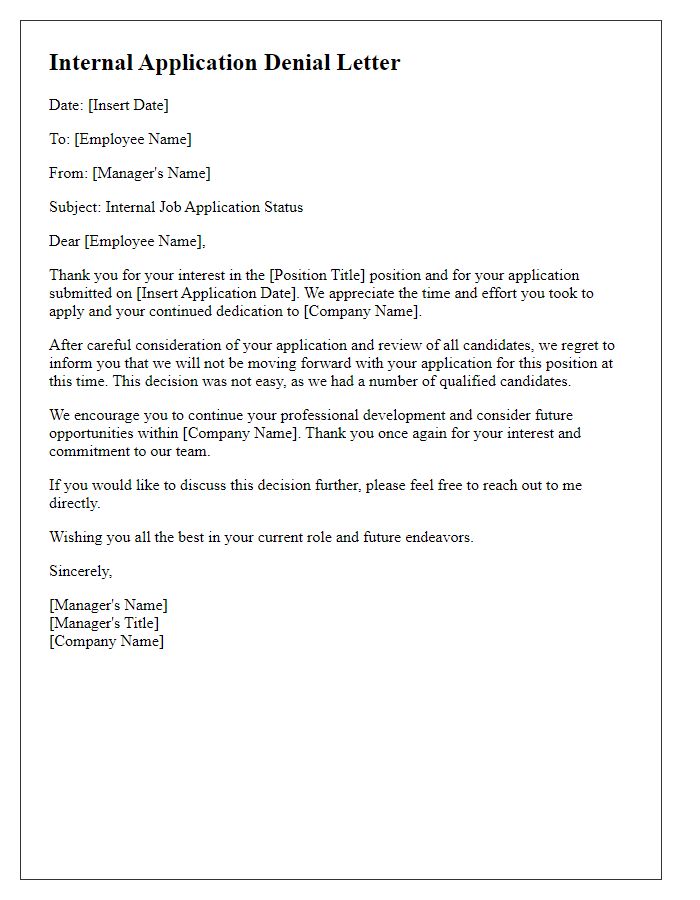
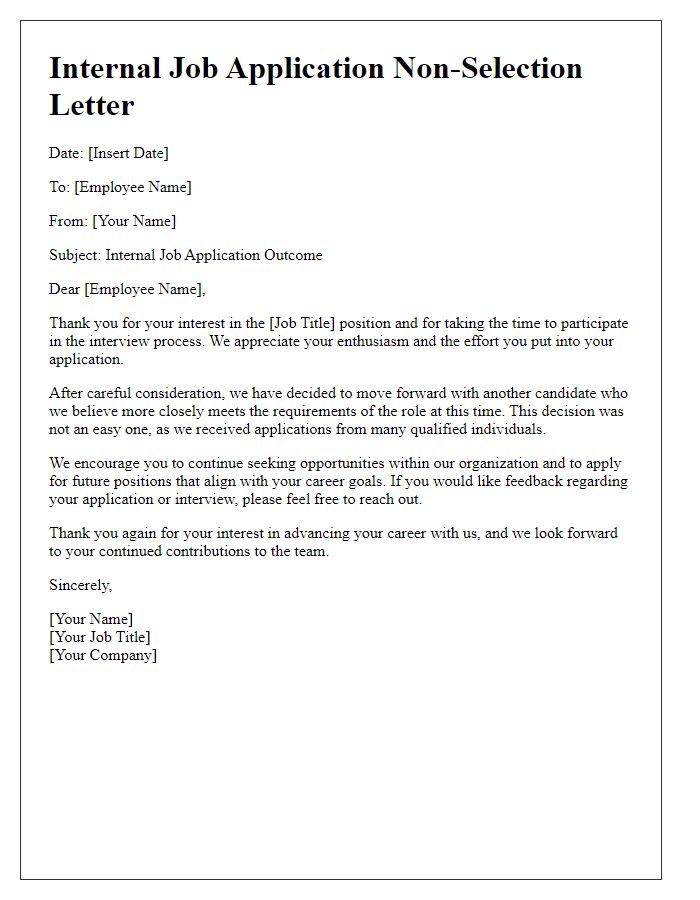
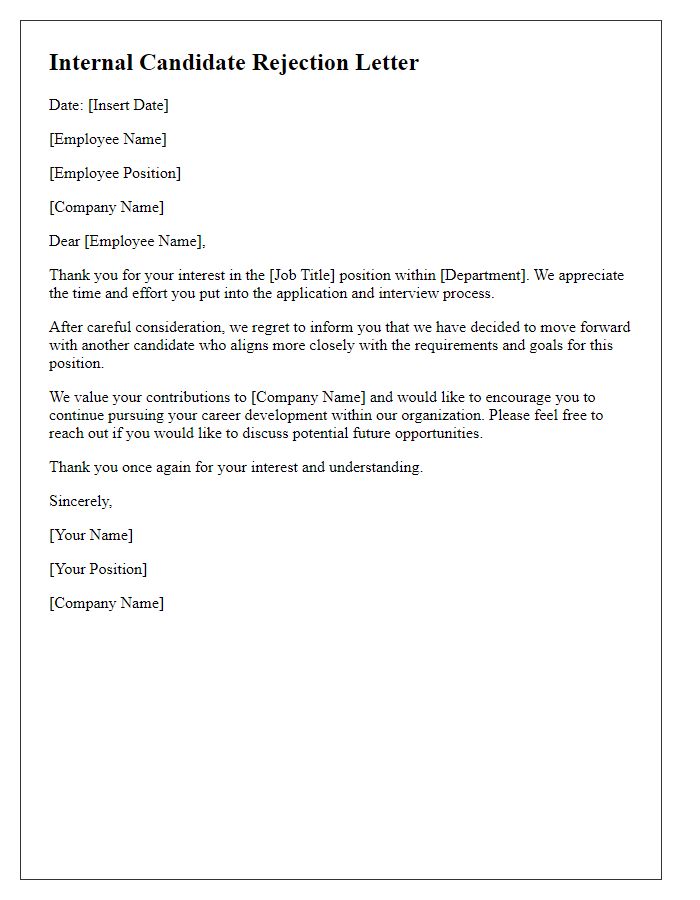
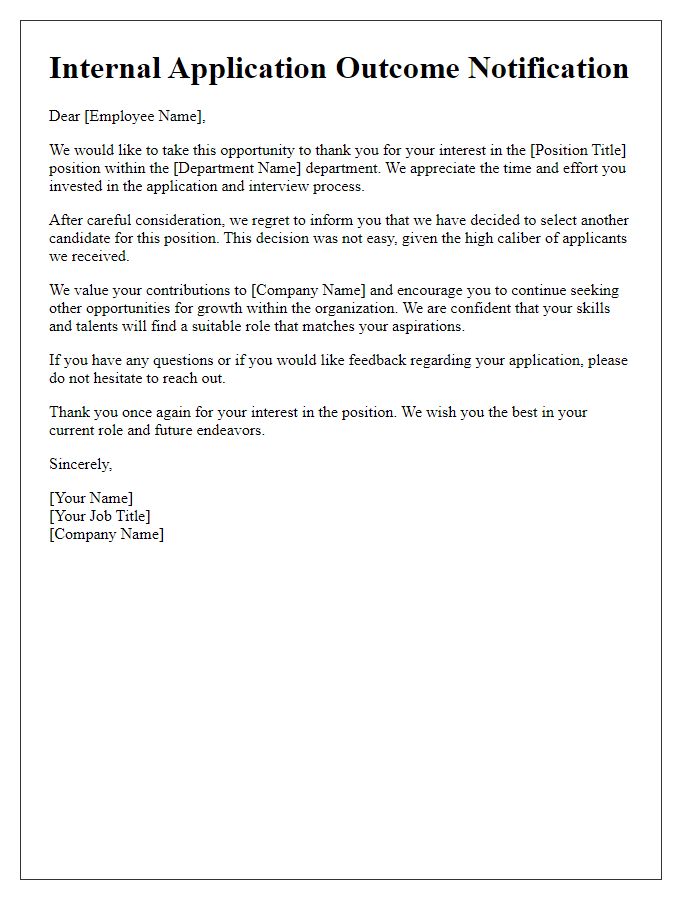
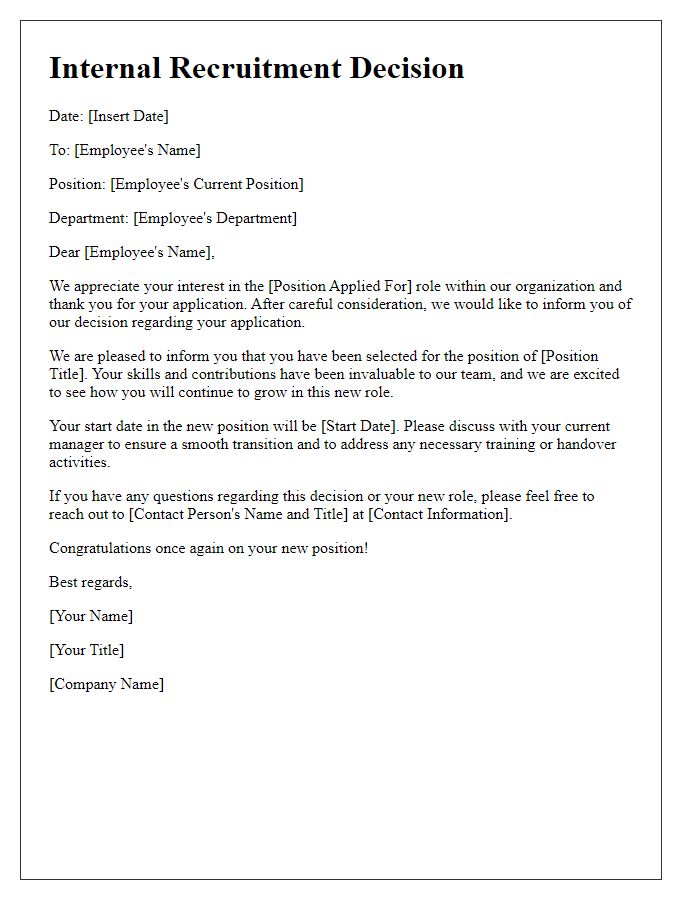
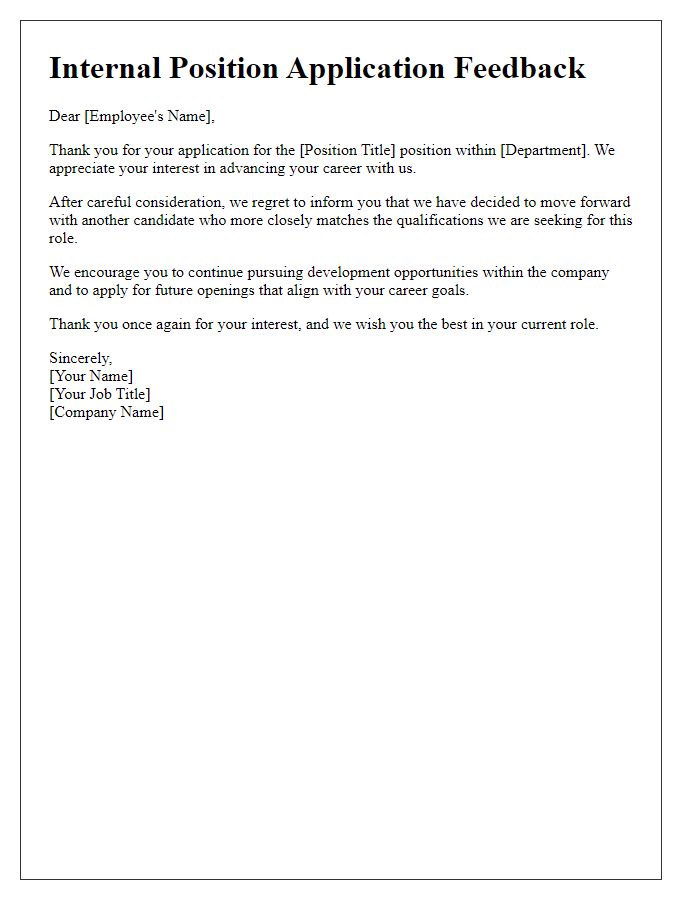
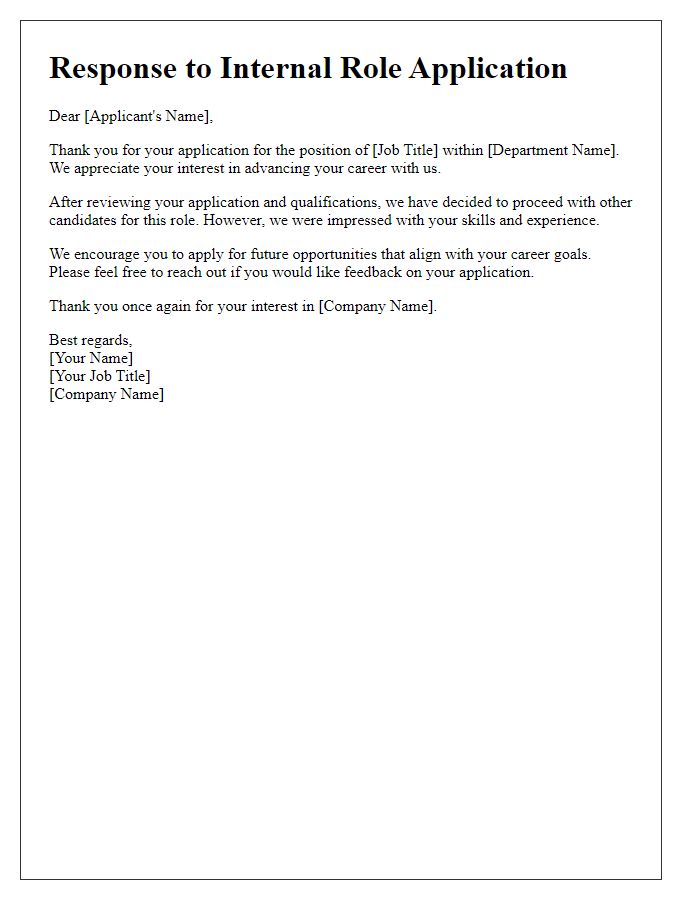
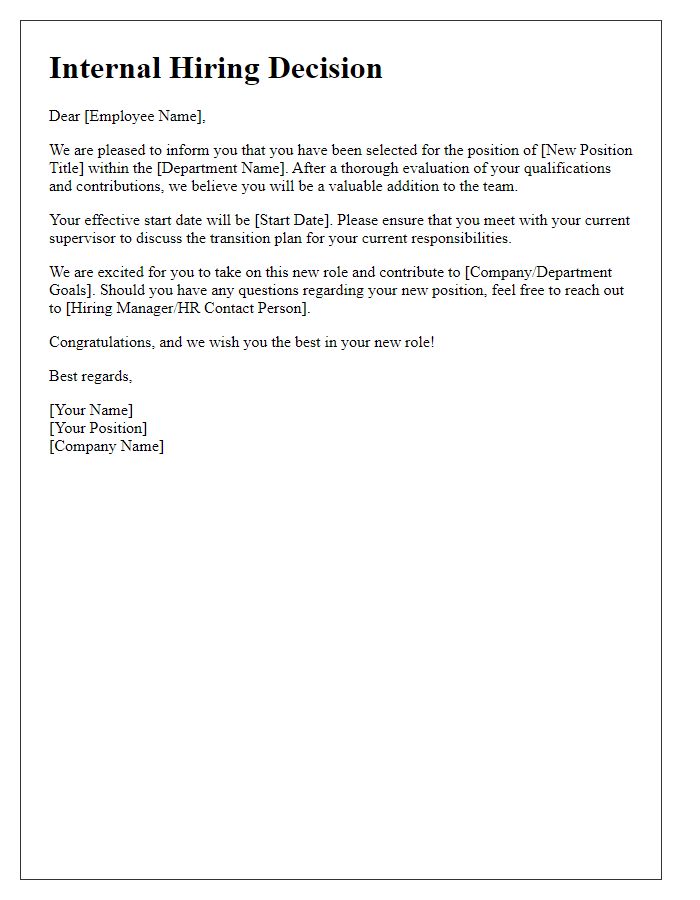
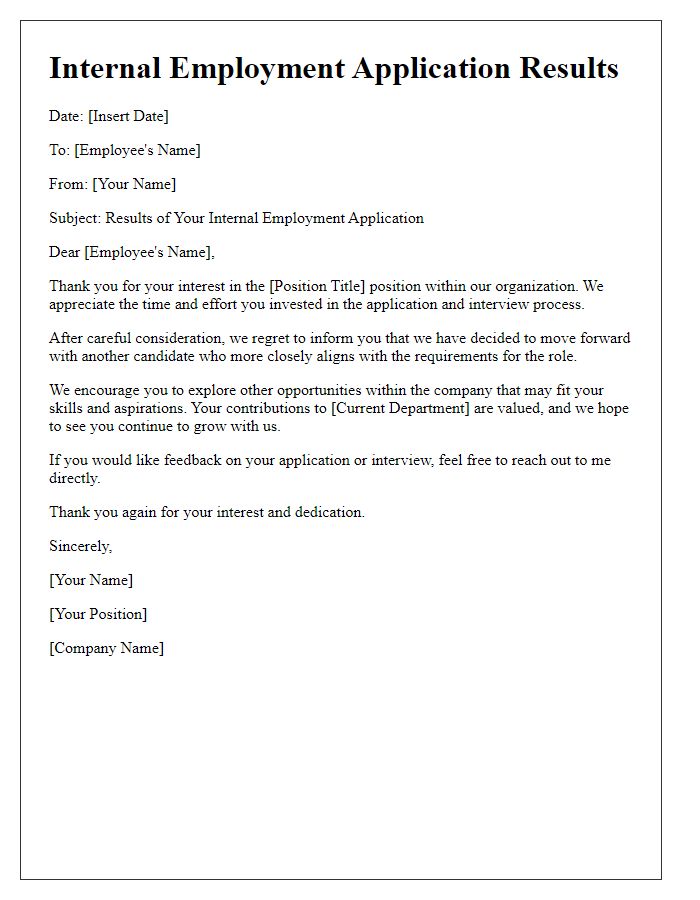
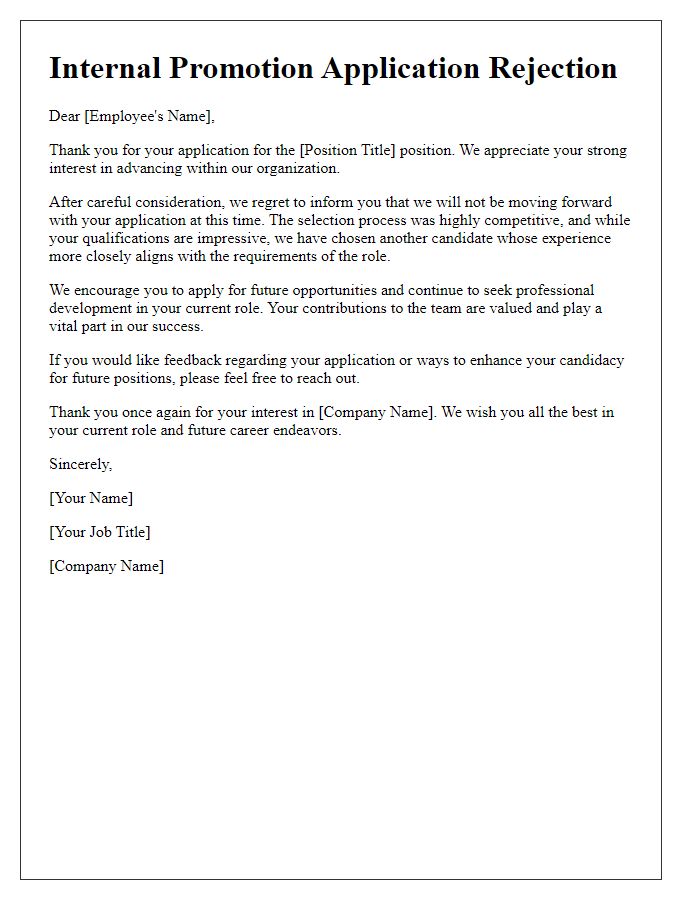


Comments